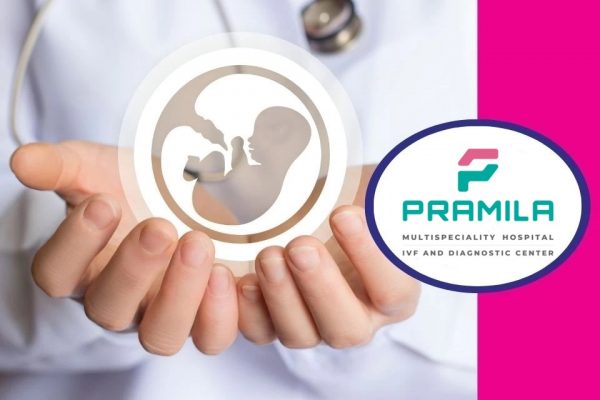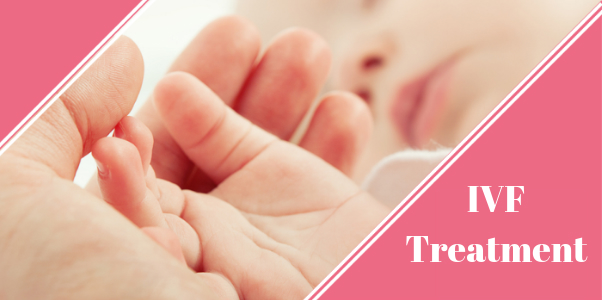IVF CENTER
IVF
IUI
ICSI
Complete infertility workup
Ovulation induction
Egg & oocyte donation + cryopreservation
Semen analysis + cryopreservation


IVF is the original ‘test-tube’ baby technique. It was developed more than 30 years ago for the treatment of women with infertility.
Who should go for IVF ?
The National Institute for Health and Care Excellence (NICE) fertility guidelines make recommendations about who should have access to IVF treatment on the NHS in England and Wales.
These guidelines recommend that IVF should be offered to women under the age of 43 who have been trying to get pregnant through regular unprotected sex for 2 years. Or who have had 12 cycles of artificial insemination, with at least 6 of these cycles using a method called intrauterine insemination (IUI).
Blocked Fallopian Tubes
Ovalution Disorder
Endometriosis
Impaired Sperm Production Or Function
Female Partners With Hostile Cervical Mucus
For Couple Facing Several Fertility issues together
Genetic Disorder
Fertility Preservation in case of cancer or any other health condition
Options for fertile female cancer patients
Options for women who are not fertile after cancer treatment
Blocked Fallopian Tubes
If both fallopian tubes are damaged or blocked, the egg and sperm cannot find each other. This is called tubal factor infertility, and is basically a mechanical barrier that prevents fertilization. Blocked fallopian tubes prevent natural conception, but in vitro fertilization (IVF) can bypass the tubes.

Ovalution Disorder
Ovaluation disorder is when the ovaries are not functioning correctly, and you do not have a regular menstrual cycle, which is a result of an unfertilised oocyte. This cycle includes your ovulation and fertility period. Without ovulation, you cannot get pregnant naturally. Ovulation disorders are a spectrum of conditions that affect a woman’s endocrine system, which controls her hormones and her patterns of ovulation, the process by which a woman’s ovary releases an egg during her menstrual cycle.
Ovulation disorders can cause infrequent and irregular ovulation, as well as anovulation, or the absence of ovulation, which is a common cause of irregular menstrual cycles.
Some medications, conditions and lifestyle factors can affect hormone levels and cause an ovulation disorder.

Endometriosis
Endometriosis is an often painful disorder in which tissue similar to the tissue that normally lines the inside of your uterus — the endometrium — grows outside your uterus.
Endometriosis most commonly involves your ovaries, fallopian tubes and the tissue lining your pelvis.
Rarely, endometrial-like tissue may be found beyond the area where pelvic organs are located.

Impaired Sperm Production Or Function
Low sperm count, also called oligospermia, is a major cause of male infertility. Sperm count is considered low if it dips below 15 million sperm per milliliter (mL) of semen, although the average is around 75 million sperm per mL. Risk factors include having obesity or overweight, having experienced trauma or surgery in or around the testicles, and taking certain medications. Other things that may put you at risk include exposing your testicles to too much heat or having other medical issues.

Female Partners With Hostile Cervical Mucus
Cervical mucus is very important for conception. It is produced in the cervix which is present at the opening of the womb. It changes over the course of the cycle because of hormones. Cervical mucus creates the ideal environment for the semen to thrive and move freely, and hence, is very essential in achieving pregnancy. Before ovulation starts, there is an increase in the cervical fluids which look like raw egg whites in consistency. When the cervical mucus is in this form, it helps in nourishing the sperm cells and increases their capability to move through the cervical canal. Hence it can be said that cervical mucus is essential to improve the chances of pregnancy. This process can be impeded if there is any problem with the cervical mucus and will cause problems in getting pregnant. This is known as cervical mucus hostility and it is the reason behind 3-8 percent of all infertility cases in females.
Sometimes, the cervical mucus in a woman starts attacking and destroying the sperm before it reaches the egg. This condition is known as cervical hostility. Problems with a woman’s cervical mucus might interfere with the chances of getting pregnant. If the case is mild, it may lead to increase in the time to get pregnant and not cause infertility. However, serious problems with cervical mucus will cause infertility and might require treatments as well as hormonal support. When these problems become the reason for fertility problems, it is referred to as hostile cervical mucus. Problems with vaginal secretions include the ones that are highly acidic, severe vaginal dryness, or even other immunological problems can also be referred to as hostile cervical mucus.

For Couple Facing Several Fertility issues together
Infertility is the inability to conceive after a year of trying.
In women-
Endometriosis
uterine fibroids
Thyroid disorders
PCOD
etc. can all contribute to infertility.
In men-
low sperm count
Low testosterone levels
Can be one of the causes of infertility.

Genetic Disorder
Secondary infertility arises due to systemic or syndromic genetic defects, including developmental, endocrine, and metabolic defects. Genetic syndromes that manifest male or female infertility are fragile X syndrome, Kartagener’s syndrome, myotonic dystrophy, Noonan syndrome, Fanconi anemia, sickle cell anemia, β-thalassemia, etc.

Fertility Preservation in case of cancer or any other health condition
Certain cancers and their treatment can affect fertility in males and females. When a person with cancer wants to have children after treatment ends, some planning is needed. Sometime this involves fertility preservation. Fertility preservation is when eggs, sperm, or reproductive tissue are saved or protected so that a person can use them to have children in the future.
Pramila Multi Speciality Hospital and IVF Center provides you facility of oocyte,embryo and semen cryopreservation.
Options for fertile female cancer patients
Embryo and oocyte cryopreservation
Ovarian tissue freezing
Ovarian transposition
Fertility-sparing surgery
Ovarian suppression
Progesterone therapy for early-stage uterine cancer
Options for women who are not fertile after cancer treatment
Donor eggs
Donor embryos
Surrogacy
Adoption
How does IVF work?
All IVF treatments begin with a course of hormone therapy to stimulate the development of several follicles in the ovary. These are collected as eggs, which are then fertilised in a test-tube (‘in vitro’) to create several embryos. After between two and five days in an incubator, one or two of these embryos are transferred through the vagina to the uterus, where implantation occurs and pregnancy begins. However, in IVF as in natural conception, not every embryo implants to become a pregnancy, which is why surplus embryos are frozen – so that a subsequent transfer might be tried if the first one fails. Freezing is now an essential part of every clinic’s IVF programme.

IVF Process

Treatment and Counseling

Stimulation and Monitoring

Ovum Retrieval

Sperm Collection

Embryo Transfer

Post Transfer Care
Looking for professinal & trusted medical healthcare? dont hesitate to contact us.
Medical quality care
Exactly What Facilities We Provided
15+ Years Of Experience
We provide you treatment of the most experienced doctors and their team.
Quality Care
We provide uncompromised quality care.
Standards of Treatment
Raising bars everyday with standard and quality of treatment .
Patient Experience
We are committed to provide best treatment and care experience to the patient
Infection Prevention
With central sterilization and supply department ( CSSD) we provide most hygienic and safe treatment.
Well Communication
Effective doctor-patient communication is the core strength of our hospital
Our Speciality
Pramila multispeciality Hospital is a well equipped medical center providing best quality treatment with hi-tech facilities of ICU, NICU, PICU, modular operation theatres compatible for laparoscopic, orthopaedic and bariatric surgeries. Our Hospital also has an infertility center providing town’s best complete infertility treatment. Along with these services we also provide finest diagnostic services.
- OBSTETRICS & GYNECOLOGY
- IVF/TEST TUBE BABY CENTER
- LAPAROSCOPIC MINIMAL INVASIVE SURGERIES
- PAEDIATRICS MEDICINE & SURGERY
- ORTHOPAEDICS & JOINT REPLACEMENT
- GENERAL MEDICINE
- E.N.T(EAR,NOSE, THROAT)
- GASTROENTEROLOGY
- UROLOGY
- GENERAL SURGERY

